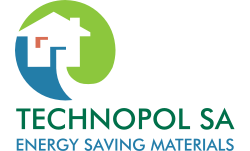EPS is an efficient thermal and electrical insulator and together with other building materials reduces air born sound transmissions. It is not soluble in water and resistant to attract by alkalis, dilute inorganic acids and gypsum plaster. EPS ages well, retaining it’s functionality for many years.
Compressive Resistance:
EPS behaves as a linear elastic material up to a strain of about 1%. As a result, the design recommendation for EPS is to limit loading to the compressive resistance at 1% strain.
R-Value:
EPS is an efficient thermal insulator. EPS is non-hygroscopic and limits water absorption from the atmosphere since its cellular structure is essentially water resistant and provides zero capillarity.
Stability:
EPS is resistant to fungi and mould and offers no nutritional value to insects.
Aging Behaviour:
Polystyrene is stabilized against the aging which can be brought about by exposure to atmospheric oxygen at elevated temperatures. Indoors under normal light and temperature conditions, parts made of Polystyrene retain its appearance and its functionality for years.
Electrical Properties:
Polystyrene is a very good electrical insulator.
Chemical Resistance:
EPS is not soluble in water. EPS is resistant, at ambient temperature, to the following:
- Alkalis
- Dilute inorganic acids
- Gypsum plaster/wallboard
